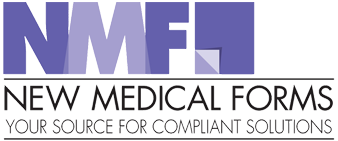 Loading... Please wait...
Loading... Please wait...The Affordable Care Act: IRS Warns Preparers that Some May Not Receive Advance Premium Tax Credit in 2016
Posted by New Medical Forms on 23rd Sep 2015
American taxpayers who received premium tax credits in 2014 under the Affordable Care Act (ACA) should file their tax returns for that year if they intend to see those advance payments again.
According to an August 2015 notice by the Internal Revenue Service (IRS), individuals who accepted advance payments for the purpose of purchasing an insurance policy at the Health Marketplace could be missing out on those credits for 2016. To avoid this situation, these taxpayers should file their 2014 returns at this time.
Taxpayers who received these advance payments last year, and who have not yet filed their returns, are being reminded by means of Letters 5591, 5591A or 5596. The recipients of these letters did not file their annual tax returns by the normal April 15 deadline. With the automatic six-month extension normally granted by the IRS, taxpayers now have until October 15, 2015 to file their returns and still be able to take advantage of the premium tax credits so that they can purchase adequate health insurance coverage.
Along with their federal tax returns, these taxpayers must also file IRS Form 8962, Premium Tax Credit. Electronic filing is recommended.
Failure to file could lead to a gap in coverage and non-compliance under the provisions of the ACA. In such case, individuals may be expected to pay back some or all of the advance payments they received, and they could be on their own when they return to the Health Marketplace to shop for 2016 policies.
The issue of advance payments and premium tax credit is intrinsic to the optimal functioning of the ACA. First of all, the eligibility of a taxpayer is determined by the minimum value indicated on the Form W-2 Reporting of Employer-Sponsored Coverage. In mid-2014, the IRS issued the first set of forms that will be used for this reporting, and these forms are expected to provide guidance to employers and tax preparation professionals as to how the process will work in the future.
The IRS has issued two other notices related to ACA premium tax credits this year. The first notice was related to relief from penalties to taxpayers who are either late or short on their repayments to the IRS on their advance payments. The second notice also provides relief, but it is related to Form 1095-A, also known as the Health Insurance Marketplace Statement; essentially, if a taxpayer timely files a return despite believing that the Form 1095-A was either incorrect or delayed, he or she may qualify for relief from penalties even if they are short or late on their repayments to the IRS.
Tax Credit Criteria
For employees
In order to obtain a premium tax credit, very specific criteria must be met. All of the following requirements are needed to qualify for a premium tax credit:
- Health insurance must be purchased through the Federal or State Exchange
- Minimal, affordable health insurance is not offered through an employer
- Do not file tax returns under a Married Filing Separately form (unless special circumstances allow this)
- Employee is not a dependent on another person's tax return
For employers
The premium tax credits affect employers by requiring their participation in the Employer Shared Responsibility Provision. An employer is required to participate in this provision if:
- The employer employs at least 50 full-time employees or the equivalent counting both full and part-time workers
- The employer chooses not to offer a health insurance option that meets at least minimum coverage requirements and/or is affordable to employees
- At least one employee qualifies for a premium tax credit
Tax Reporting Requirements
Healthcare regulations require that an employer report the health coverage of each employee each year. This involves divulging records of coverage offered and proof that minimum coverage standards are met. All employee coverage records are subject to these regulations, including full-time, part-time, seasonal, and any employee that worked for any period during that calendar year even if they are no longer employed by the company.
For more information, please contact:
New Medical Forms
1-888-482-7288
www.newmedicalforms.com


